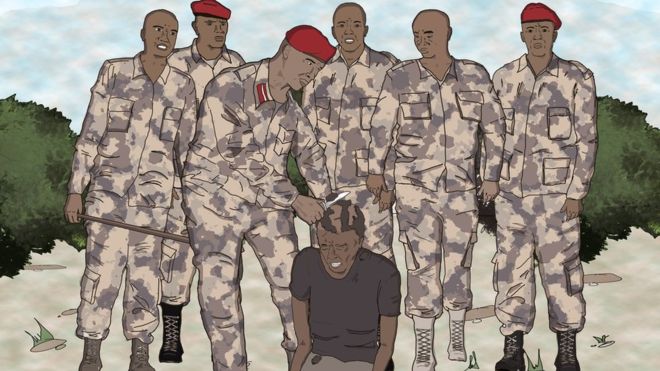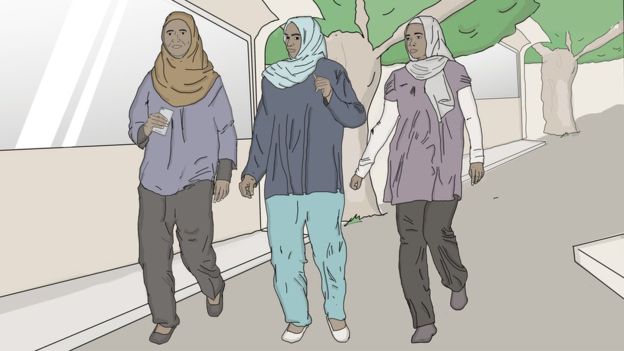Africa News
Sudan: The country where the police are shaving afro hair of men

It is not clear why security forces have begun shaving heads of men with black power, but the hairstyle is often associated with conservative religious circles with out-of-rule behavior.
In recent weeks, Sudanese Internet users have been shocked by videos and photos depicting young black-haired youths with shaved heads by security forces in poor neighborhoods in Khartoum, the capital.
The operation is being carried out by soldiers of the Rapid Support Force, many of them were part of the Janjaweed militia, which is supported by the government. Janjaweed is accused of committing atrocities in Darfur in the early 2000s. They were accused of killing the men and raping women in villages seen as sympathetic to the rebels, and then burning down all the houses.
Now they have a new role.
The militia was called a Rapid Support Force and was given the task of arresting traffickers and preventing emigrants from leaving Europe, a European Union mission, although European officials deny that the money is going to the old Janjaweed.
It is unclear why they started shaving the heads of men with black power, but the hairstyles are often associated in conservative religious circles with out-of-norm behavior.
Beaten for wearing pants
Dress is a delicate matter in Sudan, where clothes can cause problems.

Between 43,000 and 50,000 women are arrested or picked up each year by this police because of their way of dressing.
A few days before the shaved heads’ images came to light, it was being discussed in the country about how a television presenter and women’s rights advocate had reacted to an imam (Muslim priest) and a Muslim researcher who said sexual harassment and marriage children were justifiable.
They were participating in a debate on the Deutsche Welle channel on what women in Sudan want.
The singer who faced the Imam
We’am Shawogi told the imam that he should be discussing issues like equal wages rather than talking about the appearance of women and that it is up to the woman to decide what to wear.
Some people were angry because they thought she was disrespecting the imam, but others said that the tone reflected the frustration of many women over what they see as backward opinions.
Soon after the debate, Shawogi received death threats on social networks from Sudanese men.
She, who owns a café in Khartoum that became a meeting place for artists and musicians, had to hide.
The debate did not ease the actions of the Public Order Police, which last month arrested singer Mona Magdi Salim after pictures of her singing trousers in a show circulated on social networks.
She has been charged with indecent dress and will be beaten if convicted.
According to a Thomson Reuters Foundation survey last year, Sudan is one of the five worst countries in the Arab world with regard to women’s rights – it is number 17 out of a total of 22.
This comes as a result of a Human Rights Watch report in 2016 that said Sudanese security forces committed sexual violence and intimidated women who defend human rights in other ways.
‘Humiliated for years’
Winni Omer is a journalist and human rights activist who is also an example of a Sudanese woman who is not silent and is therefore persecuted.
She was arrested last year while walking on the street with her friends for wearing clothes considered indecent, although she was in a long skirt. In the end, she was acquitted.
A few months later, the police arrested her again with a friend. They were accused of being prostitutes and were banned from traveling abroad.
After a year of trial, she was allowed to leave Sudan to pursue post-graduate human rights studies abroad. Your case is on trial.
The long history of the Public Order Police in Sudan shows that the establishment is afraid of any change it sees as a threat to its authority.
Now it seems young men in black power, dreadlocks, or long, low-slung pants like a skater are taking the same treatment as women who have been humiliated for years because they want to break away from Islamic and Arab traditions.
